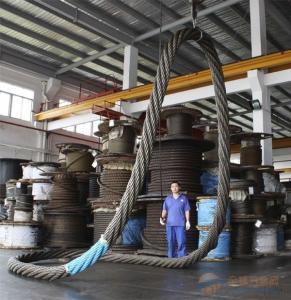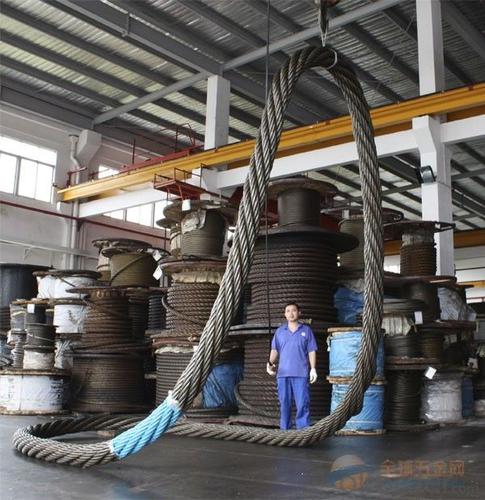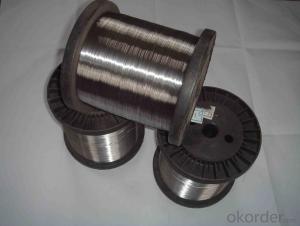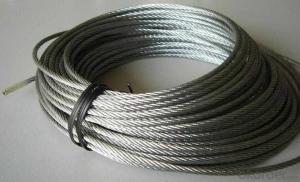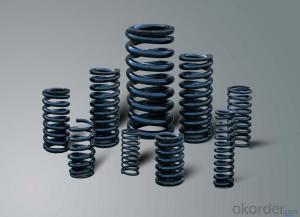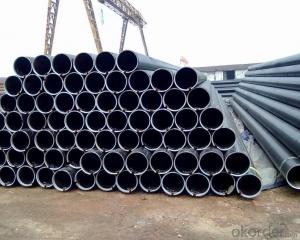302 Stainless Steel Spring Wire For Crane Hot Sale and High Quality
- Loading Port:
- Shanghai
- Payment Terms:
- TT OR LC
- Min Order Qty:
- 50 m.t.
- Supply Capability:
- 300 m.t./month
OKorder Service Pledge
OKorder Financial Service
You Might Also Like
1.Packing And Delivery
Package: Seaworthy package
MOQ: 0.5 tons
Delivery: 15-20 days
Monthly Output: 100 tons
Payment : 30%T/T in advanced+70% balanced;irrevocable L/C at sight
Remarks: All-risk insurance and accept the third party test
Port : Shanghai
AISI 316 high tensile strength stainless steel spring wire
| Detail as follows: | |
| Standard | AISI,ASTM,GB,SUS etc |
| Grade | 201,202,204,301,303,304,304L,310,316,316L etc |
| Diameter | 0.7mm-14.0mm |
| Surface | Bright or matt |
| Condition | hard |
| Tolerance | +/-0.03mm |
| Length | According to customers’ requirement |
| Packing | Packed by weaved bag or according to customer's requirements |
| Technology | Cold drawn |
| Application | Spring |
| Productivity | 300 tons/month |
| MOQ | 100KG |
| Note | We can produce other standard as the customers' requirement |
ODM&OEM SERVICES | |
Service | Drawings or samples processing/OEM/ODM service provided |
Produce Process | Drawings→ mould making → pre-forging →rough machining or finish machining →surface treatment →product checking and quality control→ packing →delivery |
Forging Material | Carbon Steel, Alloy steel, Stainless steel |
Standard | ISO, GB, ASTM, DIN, JIS |
Produce Equipment | Friction Screw Press Series, CNC Lathe, Machining Center (Vertical Spindles), CNC Milling Machine, Bench Drilling Machine, Heat Treatment Equipments and so on. |
Surface treatment | Heat treatment, Polishing, shot blasting, Painting, Electro-plating, Chemical Plating, |
Inspection Equipments | Metallurgical analysis, tensile strength tester, Hardness tester, Altimeter, Scale Micrometer, pressure tester, etc. |
Delivery | Samples are sent by express Large quantity products delivered to customer by sea or according to your request |
Terms of payment | T/T or L/C |
1. Competitive price and quality from our own factory
2. Approved by ISO9001, CE, SGS every year
3. Best service with 24 hour`s reply
4. Flexible payment with T/T,L/C , paypal, kunlun bank, western union, etc.
5. Smooth production ability(50000tons/month)
6. Quick delivery and standard exporting package
7. OEM/ODM
- Q: What does seamless steel tube mean? What are the main uses? What are the classifications?
- Electrical, gas, water, power, fluid, pipe.The main production process for hot rolling seamless steel tube (the main inspection):Tube preparation and check delta to billet heating, heating, rolling, perforated pipe, steel pipe and heat treatment, diameter (minus) Delta to finished tube straightening, finishing and inspection of delta (nondestructive, physicochemical, Taiwan inspection and warehousing)Main production process of cold rolled (drawn) seamless steel tube:Blank preparation, pickling, lubrication, cold rolling (drawing), heat treatment, straightening, finishing and inspection
- Q: What is the difference between API 5L and ASTM A53 steel pipes?
- API 5L and ASTM A53 are two widely used standards for carbon steel pipes. While they both serve similar purposes, there are some key differences between them. 1. Scope: API 5L covers seamless and welded steel pipes for transportation of oil, gas, water, and other fluids. It also includes plain-end, threaded-end, and belled-end pipe types. On the other hand, ASTM A53 is a standard specification for seamless and welded black and hot-dipped galvanized steel pipes used for mechanical and pressure applications. 2. Manufacturing process: API 5L pipe is produced through a hot-rolling process, whereas ASTM A53 pipe is produced through a hot-rolling or cold-drawing process. This difference in manufacturing process affects the pipe's chemical composition and mechanical properties. 3. Chemical composition: API 5L pipe typically has a higher carbon content compared to ASTM A53 pipe. This is because API 5L pipe is used for conveying oil, gas, and water, which often require higher strength and durability. ASTM A53 pipe, on the other hand, is used for mechanical and pressure applications, where lower carbon content is suitable. 4. Mechanical properties: API 5L pipe has higher minimum yield strength and tensile strength compared to ASTM A53 pipe. This is due to the higher carbon content and stricter manufacturing process of API 5L pipe. ASTM A53 pipe has lower yield and tensile strength requirements, making it more suitable for general-purpose applications. 5. Coating options: API 5L pipe can be produced with various coating options such as black varnish, 3PE, FBE, and others, depending on the application requirements. ASTM A53 pipe is usually hot-dipped galvanized for corrosion resistance. In summary, API 5L and ASTM A53 steel pipes have different scopes, manufacturing processes, chemical compositions, mechanical properties, and coating options. Choosing the right pipe depends on the specific application requirements, such as the type of fluid being transported, the operating conditions, and the desired strength and durability.
- Q: What are the advantages of using pre-fabricated steel pipes?
- There are several advantages of using pre-fabricated steel pipes. Firstly, they offer superior strength and durability, making them resistant to extreme weather conditions and corrosion, resulting in longer lifespan. Secondly, pre-fabricated steel pipes can be manufactured to precise specifications, ensuring easy installation and reducing construction time and costs. Additionally, they provide excellent structural integrity, which makes them ideal for carrying heavy loads and withstanding high pressure. Lastly, pre-fabricated steel pipes are eco-friendly as they are recyclable, contributing to sustainability and reducing environmental impact.
- Q: Can steel pipes be used for underground telecommunications networks?
- Yes, steel pipes can be used for underground telecommunications networks. Steel pipes are commonly used in underground applications due to their strength, durability, and resistance to corrosion. They provide protection and support for the telecommunication cables and can withstand the external pressure and load that occur underground. Additionally, steel pipes can be coated with protective materials to further enhance their resistance to corrosion and extend their lifespan. Overall, steel pipes are a reliable choice for underground telecommunications networks.
- Q: What is the difference between hot-rolled and cold-rolled steel pipes?
- Hot-rolled steel pipes are produced at high temperatures and have a rougher surface finish. They are known for their flexibility and are often used in applications that require bending or shaping. On the other hand, cold-rolled steel pipes are produced at lower temperatures and undergo additional processing to achieve a smoother surface finish. They are generally stronger and more precise in dimensions, making them suitable for applications that require high precision and strength.
- Q: Heating system DN40 and DN32 welded steel pipe how to connect?
- Is the wire: also called pipe thread connection, the malleable steel pipe fittings, malleable iron is the thread connection using DN40X32 diameter hoop.
- Q: Can steel pipes be used for the construction of transmission towers?
- Yes, steel pipes can be used for the construction of transmission towers. Steel pipes are commonly used in the construction industry due to their strength, durability, and ability to withstand heavy loads. They provide structural support and stability required for transmission towers, making them a suitable choice for this application.
- Q: Can steel pipes be used for culvert applications?
- Indeed, culvert applications can utilize steel pipes. The utilization of steel pipes for culverts is widespread owing to their exceptional endurance, robustness, and immunity to corrosion. They possess the capability to endure substantial burdens, accommodate extensive traffic flow, and manage large water surges. Furthermore, steel pipes can be effortlessly fabricated in diverse dimensions and configurations to cater to specific culvert prerequisites. Their prolonged lifespan and minimal upkeep demands render them a cost-efficient alternative for culvert applications.
- Q: How are steel pipes cleaned and flushed?
- Depending on specific requirements and conditions, different methods can be used to clean and flush steel pipes. One way to achieve this is through mechanical cleaning, which involves physically removing debris, rust, or scale from the inner surface of the pipes using wire brushes, scrapers, or other abrasive tools. This method is effective in removing loose or easily detachable contaminants. Chemical cleaning is another commonly used method, especially for pipes with stubborn deposits or rust. Various chemicals or cleaning agents are flushed through the pipes to dissolve or loosen the buildup, which can then be washed away. Acid-based solutions are often used for this purpose, but it's crucial to select the appropriate chemical and concentration to prevent pipe damage. High-pressure water jetting is an effective technique for cleaning and flushing steel pipes. Water is pumped at high pressure through a nozzle, generating a powerful jet that dislodges and removes debris or deposits from the pipe walls. This method is particularly useful for eliminating hard or compacted materials that are difficult to remove by other means. In some cases, a combination of these methods may be necessary to achieve the desired cleanliness. For example, mechanical tools can be used for pre-cleaning, followed by chemical cleaning or high-pressure water jetting to ensure thorough flushing and contaminant removal. Regular maintenance and cleaning of steel pipes are crucial to maintain efficiency and prevent corrosion. It's important to adhere to proper procedures and safety guidelines when cleaning and flushing steel pipes to achieve effective results and prevent any damage to the pipes.
- Q: What is PE coated steel pipe? Seek explanation
- The appearance of the native HDPE is milky white and is somewhat translucent in the narrow cross section. PE has excellent properties that are resistant to most life and industrial chemicals. Polyethylene (PE) pipe due to its unique advantages and is widely used in building water supply, drainage, underground drainage pipe, building heating, gas pipelines, electrical and telecommunications, industrial protective casing pipes, agricultural pipes etc.. The utility model is mainly used for urban water supply, urban gas supply and farmland irrigation.
Send your message to us
302 Stainless Steel Spring Wire For Crane Hot Sale and High Quality
- Loading Port:
- Shanghai
- Payment Terms:
- TT OR LC
- Min Order Qty:
- 50 m.t.
- Supply Capability:
- 300 m.t./month
OKorder Service Pledge
OKorder Financial Service
Similar products
Hot products
Hot Searches
Related keywords
